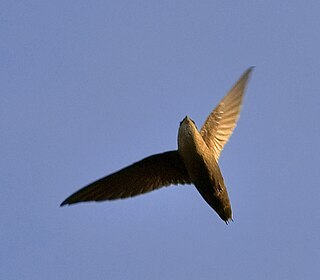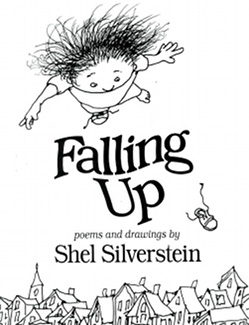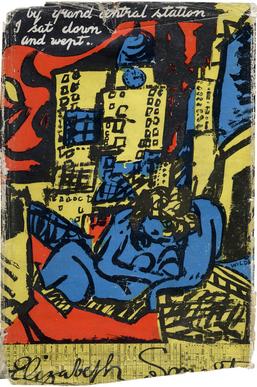A quatrain is a type of stanza, or a complete poem, consisting of four lines.

The Rime of the Ancient Mariner is the longest major poem by the English poet Samuel Taylor Coleridge, written in 1797–98 and published in 1798 in the first edition of Lyrical Ballads. Some modern editions use a revised version printed in 1817 that featured a gloss. Along with other poems in Lyrical Ballads, it is often considered a signal shift to modern poetry and the beginning of British Romantic literature.

The barn swallow is the most widespread species of swallow in the world. It appears to have the largest natural distribution of any of the world's passerines, ranging over 251 million square kilometres globally. It is a distinctive passerine bird with blue upperparts and a long, deeply forked tail. It is found in Europe, Asia, Africa and the Americas. In Anglophone Europe it is just called the swallow; in northern Europe it is the only common species called a "swallow" rather than a "martin".

"The Raven" is a narrative poem by American writer Edgar Allan Poe. First published in January 1845, the poem is often noted for its musicality, stylized language, and supernatural atmosphere. It tells of a distraught lover who is paid a mysterious visit by a talking raven. The lover, often identified as a student, is lamenting the loss of his love, Lenore. Sitting on a bust of Pallas, the raven seems to further antagonize the protagonist with its constant repetition of the word "Nevermore". The poem makes use of folk, mythological, religious, and classical references.

The eastern whip-poor-will is a medium-sized bird within the nightjar family, Caprimulgidae, from North America. The whip-poor-will is commonly heard within its range, but less often seen because of its camouflage. It is named onomatopoeically after its song.

The chimney swift is a bird belonging to the swift family Apodidae. A member of the genus Chaetura, it is closely related to both Vaux's swift and Chapman's swift; in the past, the three were sometimes considered to be conspecific. It has no subspecies. The chimney swift is a medium-sized, sooty gray bird with very long, slender wings and very short legs. Like all swifts, it is incapable of perching, and can only cling vertically to surfaces. Many fly around all day and only come down at night when roosting.

The eastern phoebe is a small passerine bird. The genus name Sayornis is constructed from the specific part of Charles Lucien Bonaparte's name for Say's phoebe, Muscicapa saya, and Ancient Greek ornis, "bird". Phoebe is an alternative name for the Roman moon-goddess Diana, but it may also have been chosen to imitate the bird's call.

"Ode to Psyche" is a poem by John Keats written in spring 1819. The poem is the first of his 1819 odes, which include "Ode on a Grecian Urn" and "Ode to a Nightingale". "Ode to Psyche" is an experiment in the ode genre, and Keats's attempt at an expanded version of the sonnet format that describes a dramatic scene. The poem serves as an important departure from Keats's early poems, which frequently describe an escape into the pleasant realms of one's imagination. Keats uses the imagination to show the narrator's intent to resurrect Psyche and reincarnate himself into Eros (love). Keats attempts this by dedicating an "untrodden region" of his mind to the worship of the neglected goddess.

Falling Up is a 1996 poetry collection primarily for children written and illustrated by Shel Silverstein and published by HarperCollins. It is the third poetry collection published by Silverstein, following Where the Sidewalk Ends (1974) and A Light in the Attic (1981), and the final one to be published during his lifetime, as he died just three years after its release. Falling Up was the recipient of the Booklist Editors' Award in 1996.. In 2015, a special edition of the book was published, with 12 new poems.

Craigenputtock is an estate in Scotland where Thomas Carlyle lived from 1828 to 1834. He wrote several of his early works there, including Sartor Resartus.

"London" is a poem by William Blake, published in Songs of Experience in 1794. It is one of the few poems in Songs of Experience that does not have a corresponding poem in Songs of Innocence. Blake lived in London so writes of it as a resident rather than a visitor. The poems reference the "Two Contrary States of the Human Soul". The "Songs of Innocence" section contains poems which reference love, childhood and nature. Critics have suggested that the poems illustrate the effects of modernity on people and nature, through the discussion of dangerous industrial conditions, child labour, prostitution and poverty.

Sonnet 30 is one of the 154 sonnets written by the English poet and playwright William Shakespeare. It was published in the Quarto in 1609. It is also part of the Fair Youth portion of the Shakespeare Sonnet collection where he writes about his affection for an unknown young man. While it is not known exactly when Sonnet 30 was written, most scholars agree that it was written between 1595 and 1600. It is written in Shakespearean form, comprising fourteen lines of iambic pentameter, divided into three quatrains and a couplet.

A chimney fire is the combustion (burning) of residue deposits referred to as soot or creosote, on the inner surfaces of chimney tiles, flue liners, stove pipes, etc.

By Grand Central Station I Sat Down and Wept is a 1945 novel in prose poetry by the Canadian author Elizabeth Smart (1913–1986). The work was inspired by Smart's passionate affair with the British poet George Barker (1913–1991).

In 1819, John Keats composed six odes, which are among his most famous and well-regarded poems. Keats wrote the first five poems, "Ode on a Grecian Urn", "Ode on Indolence", "Ode on Melancholy", "Ode to a Nightingale", and "Ode to Psyche" in quick succession during the spring, and he composed "To Autumn" in September. While the exact order in which Keats composed the poems is unknown, some critics contend that they form a thematic whole if arranged in sequence. As a whole, the odes represent Keats's attempt to create a new type of short lyrical poem, which influenced later generations.
The Nightingale: A Conversation Poem is a poem written by Samuel Taylor Coleridge in April 1798. Originally included in the first edition of Lyrical Ballads, which he published with William Wordsworth, the poem disputes the traditional idea that nightingales are connected to the idea of melancholy. Instead, the nightingale represents to Coleridge the experience of nature. Midway through the poem, the narrator stops discussing the nightingale in order to describe a mysterious female and a gothic scene. After the narrator is returned to his original train of thought by the nightingale's song, he recalls a moment when he took his crying son out to see the Moon, which immediately filled the child with joy. Critics have found the poem either decent with little complaint or as one of his better poems containing beautiful lines.

"Mariana" is a poem by Alfred, Lord Tennyson, published in 1830. The poem follows a common theme in much of Tennyson's work—that of despondent isolation. The subject of "Mariana" is a woman who continuously laments her lack of connection with society. The isolation defines her existence, and her longing for a connection leaves her wishing for death at the end of every stanza. The premise of "Mariana" originates in William Shakespeare's Measure for Measure, but the poem ends before Mariana's lover returns. Tennyson's version was adapted by others, including John Everett Millais and Elizabeth Gaskell, for use in their own works. The poem was well received by critics, and it is described by critics as an example of Tennyson's skill at poetry.

"A Little Boy Lost" is a poem of the Songs of Experience series created in 1794 after the Songs of Innocence (1789) by the poet William Blake. The poem centers on the theme of religious persecution and the corrupted dictates of dogmatic Church teachings. As part of Songs of Experience the poem is set in the wider context of exploring the suffering of innocent and oppressed individuals—in this case a young boy, and his parents—within a flawed society that is oppressed and disillusioned with life's experience.

The Loop Fire was a wildfire in Angeles National Forest, above Sylmar, California. Twelve members of the El Cariso Hotshots were killed: 10 died at the scene November 1, 1966; two died later as a result of their injuries while hospitalized.
















